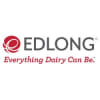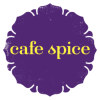Dive Brief:
-
Frito-Lay is introducing healthier versions of its chips that limit sodium and saturated fat and add more fiber, whole grains, vegetables and protein, according to Food Business News. That portfolio includes Fritos, Cheetos, Doritos, Tostitos, Lay's, Ruffles and Rold Gold.
-
PepsiCo, Frito-Lay's parent company, laid out several nutrition goals last year. These targets include having at least three-quarters of its global foods portfolio containing 1.3 mg of sodium or less per calorie and 1.1 grams of saturated fat or less per 100 calories by 2025.
-
The snack brand also has developed a roster of flavors that now totals more than 3,000, including recent new varieties such as Crispy Taco, Everything Bagel with Cream Cheese and Fried Green Tomato.
Dive Insight:
Besides its repertoire of increasingly exotic flavors, Frito-Lay is working on making its products healthier to appeal to snackers who want to indulge while still feeling like they're getting some nutrition and better-for-you products instead of just empty calories, fat, sugar and salt.
Among the innovations: Simply Tostitos Black Bean tortilla chips, with 4 grams of protein and 5 grams of fiber per serving; Sun Chips Veggie Harvest chips, made with vegetables and whole grains; and Smartfood Delight popcorn, with 35 calories per cup, Food Business News noted. There's also a new line of Lightly Salted Lay's and Fritos snack chips with half the sodium of the original varieties. In addition, Frito-Lay is considering making chips from legumes, chickpeas, sweet potatoes, yucca, carrot, turnip and/or cassava.
Snacks are a positive performer for PepsiCo, whose most recent earnings report showed sales of Frito-Lay, Doritos and Cheetos were up by 3.2% in the quarter ending September 9. The snack sector is outpacing beverages, which has been a core business for the soda giant.
Snacking and grab-and-go convenience foods have become the norm for many busy consumers — a trend that hasn't gone unnoticed by brand marketers and retailers. Half of adults snack two to three times a day, and 70% believe that any food can be a snack, according to a recent Mintel report.
A study by Datassential reveals that consumers, on average, eat about four to five snack foods a day. Yet people tend to overestimate the number of healthy snacks — like fruit, nuts, yogurt and vegetables — they eat per day. In reality, they eat more salty and crunchy snacks. Nearly half (48%) consume at least one salty snack a day, according to Datassential's report.
Chips would seem to be the quintessential salty, crunchy snack, but that doesn't mean they have to be bad for you, particularly if the manufacturer wants to appeal to millennials. They are not only the largest demographic in U.S. history — making up 23.4% of the total population — but they're also emerging as the most health-conscious generation. Food makers who want to capture this group's attention know they need to offer interesting flavors and healthier products, or reformulate existing ones to fit into the better-for-you category.
Other companies also have responded to this healthier snacking trend. Kellogg has introduced a line of LOUD Pringles made from corn, grain and vegetables. Although these seem to be a departure from traditionally unhealthy potato chips, their caloric content remains the same. As Pringles Marketing Director Kurt Simon told CNN Money: "We're not trying to convey that the new crisps are better for you."
Frito-Lay obviously is keen to limit saturated fat and salt in its products and to conform with PepsiCo's 2025 agenda. In a progress report released in September, PepsiCo Chairman and CEO Indra Nooyi said that one year in, the company had "reduced added sugars, saturated fat and sodium in its beverage and snacks portfolio volume in 2016, compared to 2015 baselines" — meaning across the company's top 10 beverage and food markets globally.
PepsiCo has set ambitious nutrition goals across all its brands, and Frito-Lay appears to be doing what it can to meet them. As long as consumers agree with the company's reinterpretation of what a chip means, PepsiCo and Frito-Lay appear to be on the right track.













